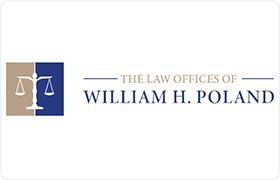Woodlawn Juvenile Law Lawyer, Tennessee
Sponsored Law Firm
-
 x
x

Click For More Info:
-
Law Offices of William H. Poland
408 Franklin St Clarksville, TN 37040» view mapCriminal Defense Law Sound, Professional, & Timely Service
As your attorney, you can be assured that we will use our best reasonable efforts to conclude your matter favorably and to keep you advised of the status of your case.
800-810-3461
Debbie Evans
Criminal, Juvenile Law, Products Liability, Family Law
Status: In Good Standing Licensed: 30 Years
Deborah Suiter Evans
Family Law, Juvenile Law, Insurance, Products Liability
Status: In Good Standing Licensed: 30 Years
Sissy Rankin
Criminal, Dispute Resolution, US Courts, Juvenile Law
Status: In Good Standing Licensed: 30 Years
Cleveland Carr Turner
Juvenile Law, Trusts, Family Law, Insurance
Status: In Good Standing Licensed: 58 Years
 Will Poland Clarksville, TN
Will Poland Clarksville, TN Practice AreasExpertise
Practice AreasExpertise
